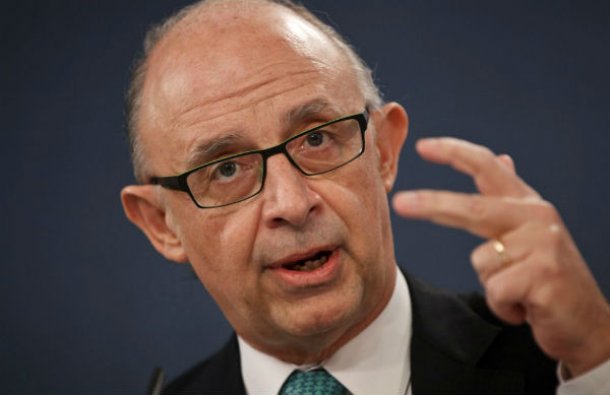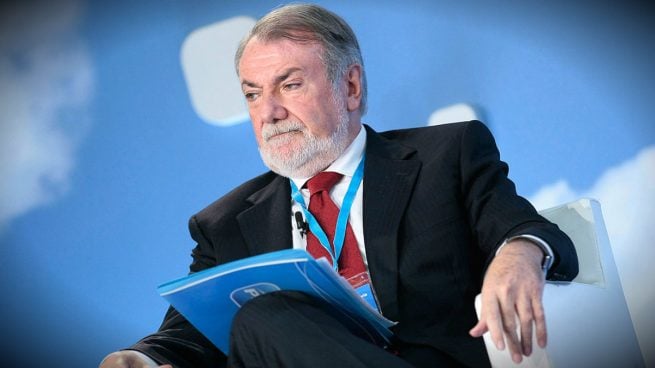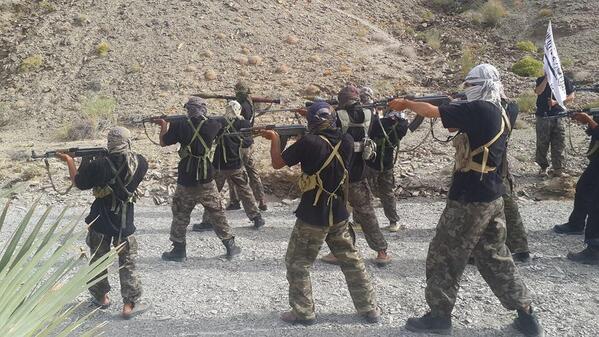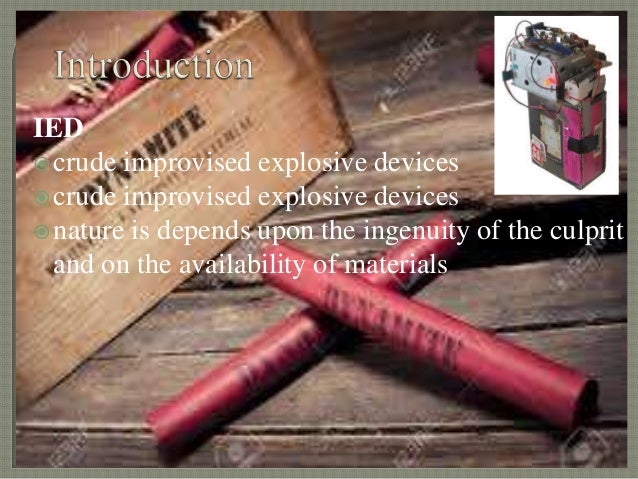A STERILE AND INEFFECTIVE INSTRUMENT
Introduction.
The dispersion and inefficiency that the authorities show in the complex labor of uniting the popular wills and in implementing clear policies of reinforcement of the national unity and of control of the hackneyed and unsuccessful ideas of dissolution and substitution of that one, have different original reasons.
A nation does not congregate and galvanize, re-joins and advances with procedure, laws and regulations. Called to juridically confine the public thing. A nation is not governed in times of dangers and incipient decadences only by the economic and accounting ideas and policies. That only serve to create and preserve the material wealth. But that at least nowadays can not avoid the hardness and the cruelty of the phases of crisis and decadence of the economic successive cycles. That literally can crush the collaboration between the social strata and deepen their differences. And these policies are bored, affected and pissquiets. Because the action of the money, which is his essence, has these natural qualities.
 SECRETARY MR. MONTORO.
SECRETARY MR. MONTORO.
This makes and defines a rachitic, defensive politics and without worthy horizons of the best efforts. And, also, serious and reliable of the duty. As serious and reliable were Cervera’s, when they sank his fleet in Santiago de Cuba and Montojo’s, when the same thing happened to him in Manila to his Spanish fleet of the Pacífico, presences.
The lack of virtues in the exercise and the example of the power and the leaders, have drained and withered the right of the country, as political national instrument.
The attempts of social politician secession.
In the secessionist case that we have opposite to the face and at this point of his process of break with the Spanish nation, there present several incognitos on what we would have to make or be doing. Would an effective preventive action be useful or counter-productive? The parsimony and uselessness, rested on the fulfillment of the procedure, which the national authorities exhibit, will allow us to take, at least, in exchange future profitable decisions?
The president has said to his party, that already there is no economic crisis to arrange. And the surveys are discounting them voters, who do not seem to want to reward indefinitely the past results. The memory that feeds the collective gratefulness is fragile, interested and changeable.
Then, the Spanish have to be convinced by the ideas and actudes in the PP, that they must vote also for the party when the things are OK. But it will be if they perceive a PP radically different from the one that has governed till now. Capable of credibly exciting and stimulating them, in unit and cooperation, towards the social immediate future in peace and prosperity.

That it is not said only that in these moments, using as protection, resting and covering in the law and his possibilities, the government is taking already legal measurements against the secessionists. Because those who are applying the law are the courts and district attorneys, since it corresponds to the Judicial Power. And the government, as Executive Power, executes very little, in trying his fulfillment and dispersing the hostile actions against the law. Also on November 1, 2014 the Catalan secessionists realized actions against the unit of Spain and the sovereignty of the Spanish, which were of equal separatist and illegal quality that these of now. And the attitude and the action of the Administration against the popular Catalan consultation of that day, was deplorable, scanty and ineffective. The lenience, the tolerance and the delay in opposite the rebels by the national executives, makes these also partial responsible and necessary, but not sufficient, cooperators, in the crimes of «nation, motherland and sovereignty» attacked and damaged by those villains.
The prudence, the aplomb and the position characterizing the public thing.
The saying «pissquiety, shits small«, indicates that you should not ask the troubled long, big or important doings. To those who look with fruition at the meters and the details of the court, do not lead them to walk many kilometres of trip.
The pissquietism has the prudence and the patience as protective shield and supposed banner of valor. But rarely a pissquiet will hurl himself or take the initiative, because he will want to cover all the bets or possibilities. The necessary and present risk in almost all the actions and enterprises is his essential distaste. And his intimate disability is the absence of charisma and leadership, fundamental for the drivers or leaders in the times of crisis that we live. But this, for shame, he will never accept it, nor will speak about it. The pissquiety is comfortable with the bridle of a society well controlled by laws and regulations. That facilitates him to walk for sure rails towards definite goals.
The professional public vocation of the pissquieties is not that of politician, though often they are. His temperamental aspirations are that of civil servants without major responsibilities, good executors of the written thing and of the ordered by their superiors. To defend his position and to use his arguments, the pissquiety is usually a good talker or announcer. He knows that all the positions are, at least, moderately defensible. And, using the word, as his instrument in the dialectics of wills with his competitors, he can impose them. In the vicissitudes of such a ruled and definite society, which does not admit improper remarks, blows in the table, suden accelerations or brusqueness.
The social and political Nation.
A nation is a society of individuals provided with one social political selfconscience. Collaborate to creating and to arrange it the history, the tradition and the customs, and the own language and moral sense. And secondly contribute to it the etnia and the own territory, that not always exist, specially the first one. This way, the territory of a country is not a nation. Nor it is not even the inarticulate population of a territory under an only government. When the nation is loved by his components and there exists in them the desire to serve it and to defend her in community, the concept of the mother land appears. Both ideas are interrelated essentially. And, the absence of the patriotism or the shame practise it by members of a «social politicalcommunity», leads to the defenselessness and to the dismemberment of their nation, in major or minor degree, forming then «groups of associate individuals». So, it is not of surprising that are the Defense Forces of a nation, as institutions and in his members, which hoist, teach and practise the patriotism as one of his essential virtues. The Forces of Defense of a nation are the specialized set of the «citizens or patriots» for the belligerent and complete Defense of his «motherland nation«.

Our ideologics and socials fortitudes.
The attacks of ideological external agents, far from crowding us together concerning the threatened motherland, face us and, even, divide more us. Because our Politics is mediocre, envious and shortseeing in aims. And our invertebrate society is a sum of beings and isolated groups, without a common north and many of them sorrowful of the foreign good.
Our majority civilization coexists with others in the same soil. But it does not want to say that we could not have several social common virtues. And, together with the beliefs that are practised, they are the definers parameters of a society. This way, his unanimous observance and respect promote largely the creation and the integration of the social group.
Of the social crises it is only possible to go out fortifying in the values and virtues. These are the «actions and qualities» of human reference, regarded and valued permanently by the human societies. The virtues are very stable in the time. The values are the human «qualities and actions», estimated only temporary and/or locally by some societies. And, principally, by virtue of his idiosyncrasy, living conditions and pressures received from the exterior. The cultural and social values are usually being evolving with the contingencies, the displacements and the fortunes of the human societies.
The virtues are provided principally by the elaborated religions, and by Cicero’s Speeches and Plato’s Dialogs, within our extensive western ideology. We mention the principal ones, which are absorbed and assumed in the human soul:
Appreciation of the family, the social group and the motherland and the friendship and the nice and curious strangers who come to our environment. It is the “vital environment” that sustains us, our «social humus» fertile and indispensable.
Need of punishment of the conducts that are separated sufficiently of the social rules. To avoid the free, excessive or untied revenge, to dissuade the possible infringer, to satisfy in justice the damages and the hurts and to reform the mistaken conducts. Cuando esta “virtud” es complaciente o deficiente, se abre inevitablemente el camino a la injuria personal o colectiva y a la necesidad imperiosa y vital de tomar venganza. Venganza que, por tender a los máximos (como diría Karl von Clausewitz) y estar alimentada por la injusticia y la cólera, se apoyará y seguirá la Ley del Talión.
Need of the education, as mark and seal of the good doing and of the social citizenship. And the formation as set of the knowledge and professional skills, necessary for the service to the family and the society, with the exercise of a way of life decent and sufficient.
Appreciation of the respect and the worship to the divinity, as recognition and veneration of the Necessary Being who creates and supports us, and, in some cases, helps us frankly and directly. And it makes concrete according to the ideology and the social environment lived.
Valuation of the different duties to fulfill as necessary, vital and social counterpart, of the several rights to receive. Valuation of the sobriety, the effort, the saving, the commitment, the study and formation and the work, as necessary factors and means for the progressive and just attainment of the personal and collective aims.
And are our values and virtues recognized, taken again and reaffirmed those who can give us the force and the illusion to overcome the decadence times.
And let’s not forget the essential function of «command, management, impulse and example» of the social leaders of all kinds, present in the homes, the schools, the churches, the political parties, the barracks, the trade unions, the working centers, the associations in general, etc. These are the cores of the collective activity of the society. Where the indispensable “illusion and enthusiasm» will settle themselves and bloom later.
In the hard times, those leaders must accentuate their example. Because, the values and the virtues cannot be seen and felt as something artificial and/or remote, without real connection with a practical and lived code. And they are not acceptable as impositions of “cold rules and regulations», dictated from a «supposed moral and intellectual apex» of the society.
Our commands manage, but the impulse that we receive from them is weak and ineffective. They give the orders weakly, deciding for it everything that collectivly can. And his example is not estimated, not taken as deserving of the emulation and the follow-up. Without biology there is no family, far from it society will exist. Are fertile and solid the families of the social chiefs?
Exemplary leaders separated themselves from their public positions.
We will speak about leaders of the right, withdrawn from the public life for ideological disagreements with his companions. Or for estimating that did not exist then the sociopolítics conditions that were allowing them to carry out his beliefs and ideals. In the Spanish left, we think that to his commans only the chronic or serious disease and the unavoidable age have separated them from the duties of his post.
We only remember Gerardo Iglesias‘s case, which was elected general secretary of the Spanish Communist Party in November, 1982, defending then the reinnovating ideas of the comrades newly purged. For it, he faced the so called Eurocommunists of Santiago Carrillo, looking for the integration of the different communist existing groups. He took part in the creation of Left Joined in 1986, being chosen his general coordinator. In 1988, he resigned all his charges in the XII congress of the SCP, being progressively replaced in them by Julio Anguita. Iglesias, which was in extended leave for absence, joined later to his former miner’s work.
This selection, extracted of what we can detect and glimpse, is an example and summary. It represents what would be a rocky outcrop, the part not plunged of the iceberg, of all the innumerable persons who in politics strain for keep and show a coherent position with an exemplary and complete ideology.
 MR. MAYOR OREJA.
MR. MAYOR OREJA.
Jaime Mayor Oreja is probably the paradigm of all the leaders that in the right have withdrawn from the public palaestra. His category are given by his characteristics: knowledge, exemplary and moral baggage, positions occupied in the public life, relations and age. Major Oreja has a solid political formation from Christian roots. Always he indicated and condemned ETA’S solvent, secessionist and communist strategy. That was acting, according to him, getting accommodated tactically to the changes of power in Madrid and using diverse attitudes and images.
Without never facing the power of the PP, he has supported a clear and serious political path. Condemning, this way, for example, the abortion, since «something proper of the Bolsheviks», and the euthanasia, which «is an old recipe of the totalitarisms that destroyed Europe in the first half of the 20th century». He never condemned the Franco’s regime in its entirety and on the occasion of the law of the Historical Memory, in the crisis of 2008, he alerted of the risks that already were threatening the concord and the unity of Spain. His ideology inspired the ideology of Maria San Gil, his companion of the Basque PP.
Alejo Vidal Quadras was president of the PP of Catalonia from 1991. In the autonomous elections of 1995 his formation obtained 17 deputies and the major number of popular suffrages up to today. By the agreement of the Majestic, in Barcelona between Convergence and Union and the PP, which allowed Aznar’s investiture as Prime minister of Spain (in the VI legislature of the current democracy, 1996 to 2000), he was immolated by the PP of his positions in Catalonia. Vidal Quadras was relocated as Eurodeputy of the PP. And he was a vice-president of the European Parliament. Nowadays is a militant of the small regeneracionist party VOX.
Maria San Gil initiates his political activity in 1991 in the of Guipuzcoan PP. When she was eating with Gregorio Ordóñez, the first lieutenant of mayor in San Sebastían, on January 23, 1995, she witnessed his murder by an ETA’S command in a restaurant of this capital. At the end of 2004, she was the chairwoman of the PP in the Basque provinces. In May, 2008, after the internal crisis of the PP on having lost the general elections, she presents her resignation as chairwoman and deputy of the PP in the Basque provinces. The motives were the strong discrepancies with the ideas and forms of Mariano Rajoy’s PP.
Jose Antonio Ortega Lara was a civil servant of prisons in the penitentiary center of Logroño. At the beginning of 1996, he was kidnapped in his house of Burgos by ETA. And he remained like that, in deplorable conditions, for more than 500 days. Until he was liberated in the last minute by the Spanish Civil Guard. He retired early at the end of 1997, initiating a political career in the PP. Always, he kept a line of defense of the democratic values of the family, the unity of Spain and of his strength and of fight against the terrorists of ETA. In the crisis of the PP in spring of 2008, he announced his march from the party for his ideological differences with him. In 2014, he joined the VOX party.
 JAISHALADL SUNNIS IRAQIS GUERRILLA POSING…
JAISHALADL SUNNIS IRAQIS GUERRILLA POSING…
 GENERAL VALERIANO WEYLER.
GENERAL VALERIANO WEYLER. GENERAL ARSELIO MARTÍNEZ CAMPOS.
GENERAL ARSELIO MARTÍNEZ CAMPOS.